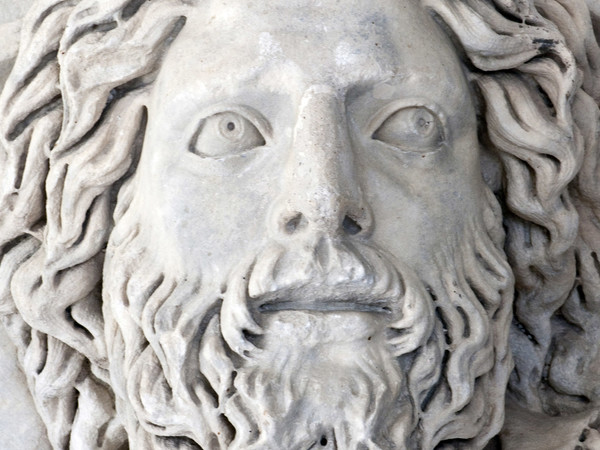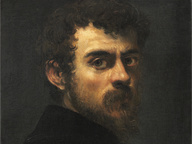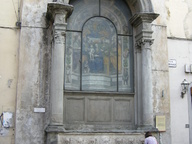Room III.1, the medallion with the bust of Jupiter
Guida Aquileia

The image of Jupiter, portrayed in all its vigor and majesty, stands out from a medallion depicting the bust of the god.
This wonderfully preserved artifact is now in the National Archaeological Museum of Aquileia. It belongs to the splendid series of eight examples in Asian marble depicting the "Twelve Gods", the main divinities of the Roman pantheon: Jupiter, Juno, Minerva, Mercury, Apollo, Diana, Venus, Mars, Vulcan, Vesta, Neptune, Ceres.
The medallion with the bust of Jupiter testifies to the high artistic level of the sculptures that decorated Aquileia's monuments.
Other medallions, found over time, including that of Minerva (exhibited in the Lapidary Galleries) are still being studied. The fact that the faces of some figures are turned to the right and those of others to the left validates the idea of their original arrangement on a straight monument with a central passage, towards which the gazes converged, on whose location the debate is open.
Like the Julio-Claudian cycle, the sculptures were found outside their original context, presumably a large late antique building built in the western area of the city.
The busts of Aquileia, made in the 4th century AD, perhaps belonged to two distinct series, which also included the goddess Rome, Hercules and Attis or Mithra.
This wonderfully preserved artifact is now in the National Archaeological Museum of Aquileia. It belongs to the splendid series of eight examples in Asian marble depicting the "Twelve Gods", the main divinities of the Roman pantheon: Jupiter, Juno, Minerva, Mercury, Apollo, Diana, Venus, Mars, Vulcan, Vesta, Neptune, Ceres.
The medallion with the bust of Jupiter testifies to the high artistic level of the sculptures that decorated Aquileia's monuments.
Other medallions, found over time, including that of Minerva (exhibited in the Lapidary Galleries) are still being studied. The fact that the faces of some figures are turned to the right and those of others to the left validates the idea of their original arrangement on a straight monument with a central passage, towards which the gazes converged, on whose location the debate is open.
Like the Julio-Claudian cycle, the sculptures were found outside their original context, presumably a large late antique building built in the western area of the city.
The busts of Aquileia, made in the 4th century AD, perhaps belonged to two distinct series, which also included the goddess Rome, Hercules and Attis or Mithra.



